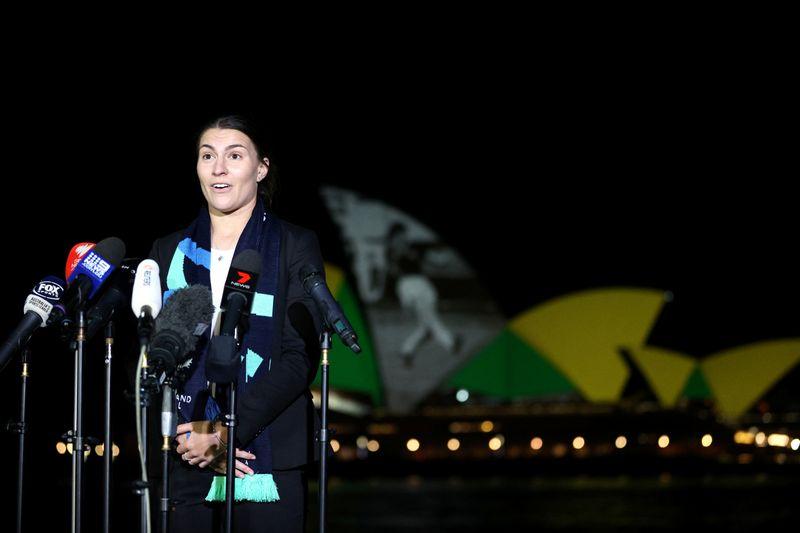Their joint proposal beat a rival bid from Colombia to host the tournament which is being expanded to 32 teams.
Japan, who had also put forward a bid to stage the event, pulled out on Monday after they were ranked below the joint bid by world governing body FIFA’s evaluation report.
The report highlighted the infrastructure and organizational advantages of the Australia/New Zealand bid which FIFA believed would make for a commercially successful tournament.
“The FIFA Women’s World Cup 2023 in Australia and New Zealand will be ground-breaking in many ways,” said a delighted Chris Nikou, president of Football Federation Australia (FFA).
“Not only will it be the first ever co-confederation hosted FIFA World Cup and the first ever FIFA Women’s World Cup in the Asia-Pacific region, but we will unlock the huge potential for growth in women’s football in the Asia-Pacific region.”
There had been media reports that the vote could be tight with UEFA’s European representatives backing Colombia but in the end the margin of victory was wide with Australia and New Zealand gaining 22 votes to Colombia’s 13.
|
|
| Australian women’s national soccer team player Stephanie Catley speaks to the media as Sydney Opera House lights up in celebration of Australia and New Zealand’s joint bid to host the FIFA Women’s World Cup 2023, in Sydney, Australia, June 25, 2020. Photo: Reuters |
Infantino support
The 2019 World Cup in France was hailed as a watershed for global interest in the women’s game and FIFA President Gianni Infantino personally drove the campaign to increase the field to 32 teams from 24 for 2023.
Infantino had also expressed a preference for the successful Australia/New Zealand bid during the FIFA Council meeting.
Colombia, who were hoping to become the first South American nation to hold the tournament, were disappointed at the decision but vowed to keep fighting to host a major FIFA event.
“We wanted the seat of the Women’s World Cup 2023 for Colombia and we gave everything to get it,” the country’s sports Ministry wrote on twitter.
“We will work more strongly to bring another World Cup to Colombia. With the efforts of all, women’s soccer (here)…will keep growing.”
Infantino said the women’s tournament should head to South America soon and suggested that increasing the regularity of the tournament to every two years, instead of a four-year gap, was worth considering.
“It is something we will look at,” he told reporters after praising the bid process’s transparency.
FIFA published details of their bid evaluation process and released all the individual votes of members of the FIFA Council, in contrast to the secrecy of some of the hosting votes in the past.





